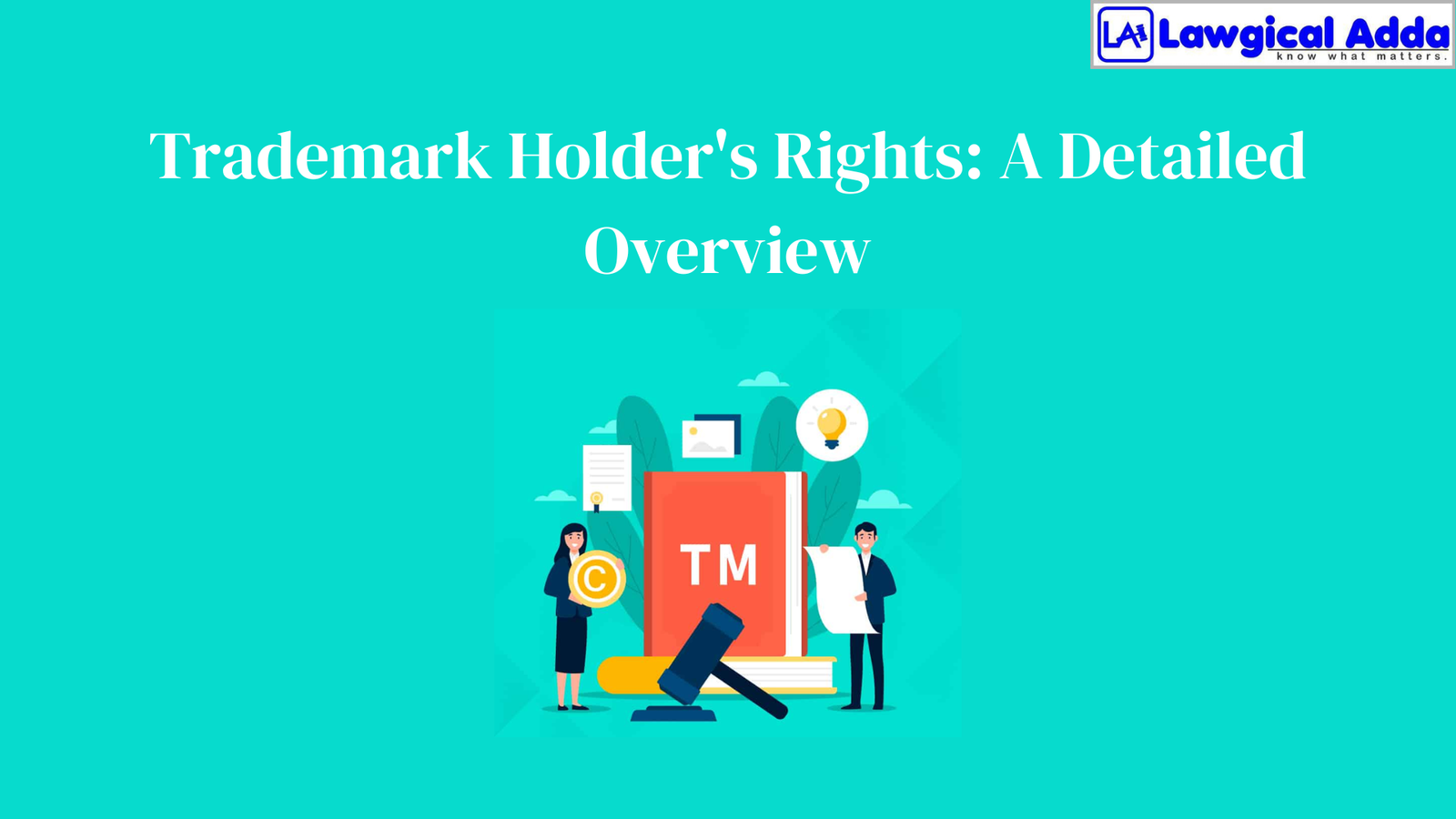Trademark Holder’s Rights: A Detailed Overview

Table of Contents
Introduction
Since they grant the owner unique rights and legal protection, trademarks are among the most important assets for any company or institution. These rights are valid for ten years, after which they may be extended.
However, under common law, the owner of an unregistered trademark also has some rights. Preventing a third party from using an identical or confusingly similar brand under specific conditions is one of the rights granted to both registered and unregistered trademark owners.
The Significance of Trademarks
For businesses, registering a trademark serves many important purposes, one of which is to protect their reputation and brand image.
- Legal Defense Against Immoral Behavior
Legal protection against unethical behavior is one of an emblem of identity’s main purposes. Businesses can protect their brand from future misuse or illegal duplication by dishonest entities by registering their trademarks.
- Increasing Brand Awareness
Developing market recognition is one of an emblem of identity’s other important functions. A distinctive and easily recognizable emblem of identity aids in giving a brand a distinct identity and makes it easier for customers to recognize and remember it.
- Setting Oneself Apart from Competing Entities
Having a distinctive logo is essential to differentiating your goods and services from those of your competitors. It serves as a visual cue that sets your business apart and helps customers choose wisely from the range of products on the market.
Rights of Trademark Holder
- Right of Trademark Holder to Exclusive Use
According to Section 28(1) of the Act, the registered proprietor of a trademark shall have the sole right to use the trademark in connection with the products or services for which it is registered, subject to the other requirements of this Act, if the trademark registration is valid.
- Right of Trademark Holder to Seek Statutory Remedies for Infringements
Additionally, according to Section 28(1), a registered trademark owner may pursue legal action in accordance with the Act’s guidelines in the event that his trademark is violated.
By suing the alleged infringer, he can get an injunction and, at his discretion, damages or an account of profits. If there is willful counterfeiting, the owner of an unregistered trademark cannot start an infringement case.
- Right of Trademark Holder to Identical Trademark
According to Section 28(3), in cases where two or more individuals are registered trademark owners of similar or nearly identical trademarks, the exclusive right to use any of those trademarks will not be deemed to have been acquired by any of those individuals.
As opposed to any other of those individuals merely by registration of trademarks, unless their respective rights are subject to conditions or limitations entered on the register.
- Right of Trademark Holder to Assign: Ownership of a Trademark
According to Section 37 of the Act, the registered owner of a trademark has the authority to assign it and to produce legal receipts for any payment made in exchange for the assignment.
This right, however, will be subject to the Act’s requirements as well as any rights that may appear from the register to belong to other people.
- Right of Trademark Holder to Request Register Correction
A trademark’s registered owner is entitled to request that any inaccuracies in the registration concerning the owner’s details and other trademark-related matters be corrected by submitting an application to the registrar.
- Right of Trademark Holder to Modify Registered Trademark
A trademark’s registered owner must apply to the registrar for permission to add to or modify the trademark in any way that doesn’t materially change its identity.
The leave may be denied by the Registrar, granted on such conditions, and subject to any restrictions that he deems appropriate.
Important Elements of Proving Infringement
In order to bring a pass-off lawsuit, the owner must prove a number of crucial elements:
- Acquisition of Goodwill: The owner of the trademark must prove that their unregistered trademark has helped them gain goodwill in the industry.
- Misrepresentation: In order to establish a link between the unauthorized use and the rightful owner’s brand, the owner must demonstrate that the defendant engaged in misrepresentation in their activities. Consumer misunderstanding may result from this misinformation.
- Loss or Likely Loss: The owner must provide evidence that unauthorised use has resulted in or has the potential to result in a material loss in order to remedy the issue. This loss could take many different forms, such as monetary loss, reputational damage, or other unfavorable effects from the violation.
Conclusion
To sum up, trademarks are necessary for companies to build their reputation and get recognition in the marketplace. As was previously mentioned, trademark owners in India can be classified as either registered or unregistered.
Secure your intellectual property with Lawgical Adda. Whether it’s Trademark Registration, Patent Registration, Design Registration, or handling Trademark Opposition, we’ve got you covered.
Let us guide you through the process—contact us today to protect your innovations. Reach out to Lawgical Adda for expert guidance. Contact us today!







